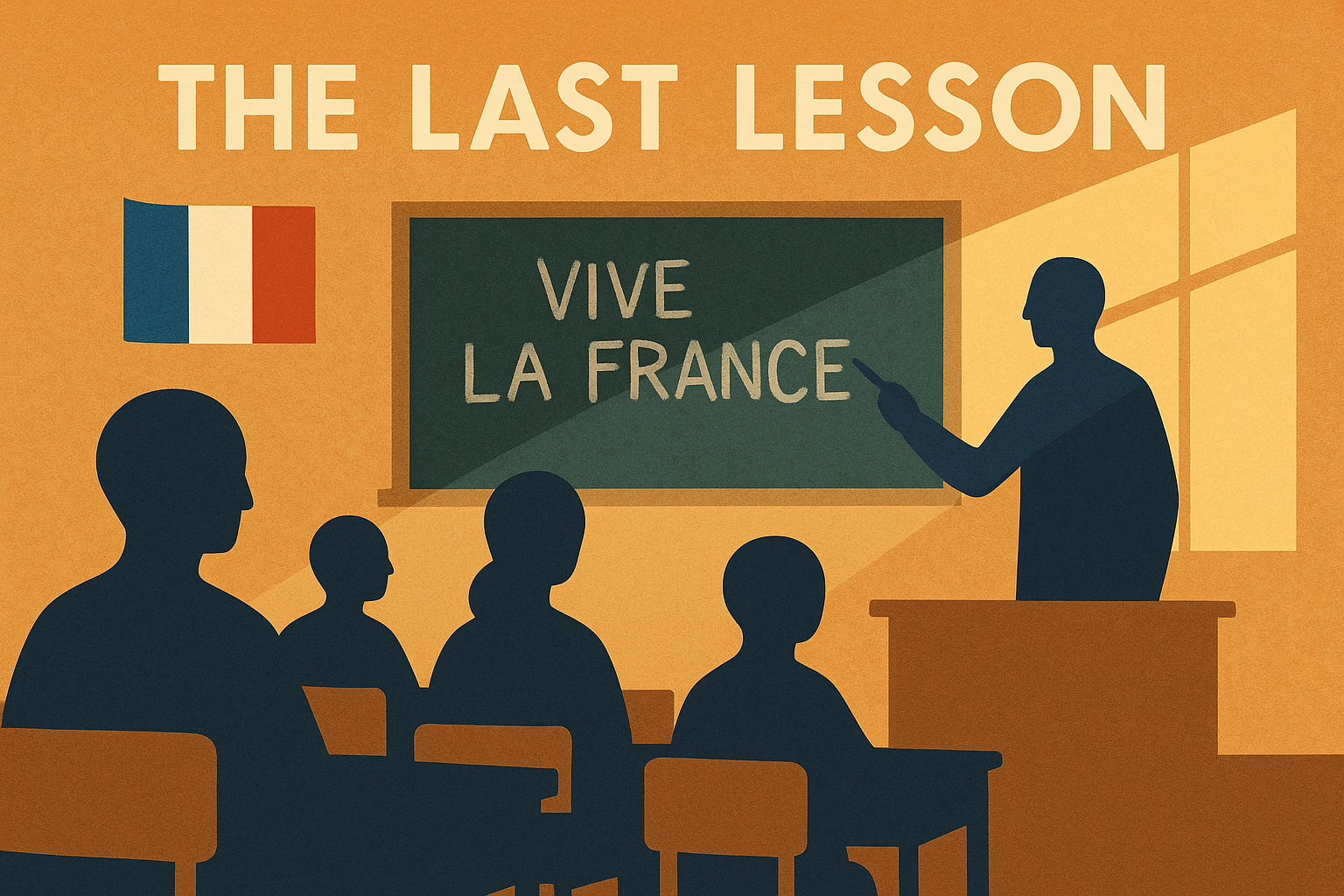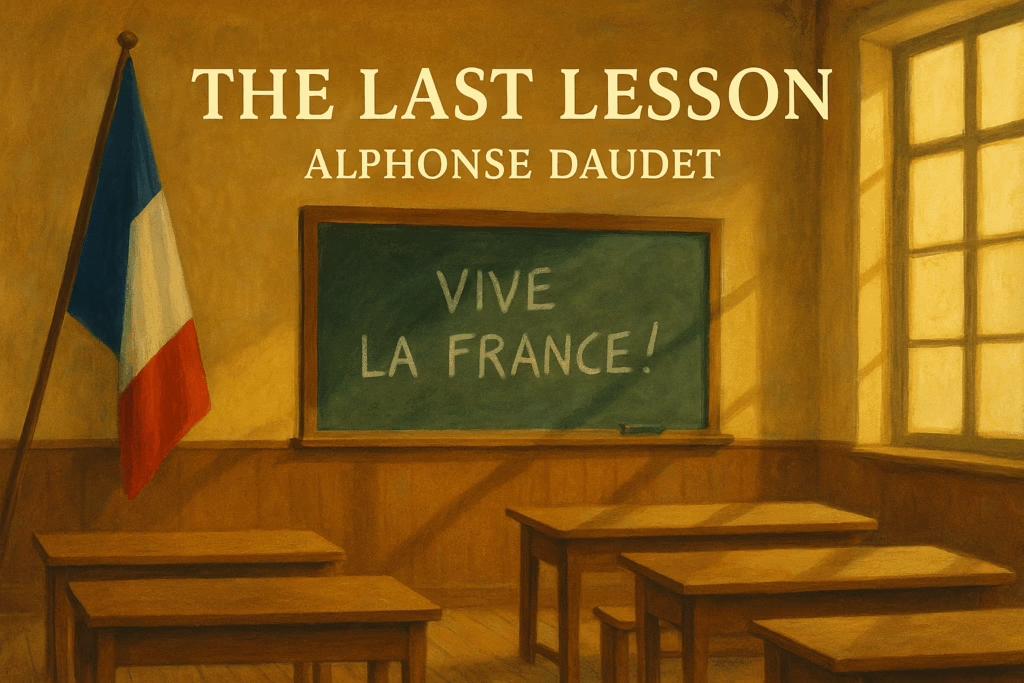Alphonse Daudet’s The Last Lesson is one of the most touching stories in the Class 12 curriculum, capturing the emotional loss felt by the people of Alsace when they are deprived of their right to learn and speak their mother tongue. Set during the Franco-Prussian War, the narrative unfolds through the eyes of a young boy, Franz, who only realizes the true value of his language on the day it is taken away. Themes of patriotism, regret, cultural identity, and the significance of education make this chapter rich in meaning and highly important for examinations.
To help students understand the text deeply and prepare effectively for tests, this article provides a comprehensive set of Extra Questions and Answers—ranging from short factual responses to long analytical explanations and higher-order thinking questions. These questions not only reinforce key ideas from the story but also strengthen interpretation, writing skills, and exam readiness.
Textual questions and answers have already been covered along with a brief summary and additional information about the author in the previous article.

A. Short Answer Questions (2–3 marks)
1. Why were the villagers present in M. Hamel’s class that day?
The villagers came to show their respect for M. Hamel and to express regret for not learning French when they had the chance. They wanted to honour him for his forty years of service and to stand in solidarity as their language was being taken away.
2. How did the announcement from Berlin change Franz’s attitude toward learning?
Franz suddenly realized the value of the French language and felt deep regret for wasting time earlier. He became attentive, emotional, and wished he had studied more seriously.
3. Why was the classroom unusually quiet that day?
It was quiet because everyone was overwhelmed by the news that this was the last French lesson. Even the usual morning bustle was missing due to the serious and emotional atmosphere.
4. What did M. Hamel say about the French language?
M. Hamel said that French is the most beautiful, clear, and logical language in the world. He emphasized that a conquered people can remain free as long as they hold on to their language.
5. How did M. Hamel display his feelings on the last day?
M. Hamel wore his best Sunday clothes and taught with great patience. His voice choked with emotion at the end when he wrote “Vive La France!” on the board, showing his patriotism and sorrow.
6. Why does Franz describe the rule for participles as “dreadful”?
Because he had not prepared for it and feared being scolded by M. Hamel. The topic seemed difficult to him due to his lack of interest in studies.
7. How did the villagers show their regret?
They sat quietly with open primers and listened attentively. Old Hauser even used his spectacles and spelled letters aloud, showing their desire to learn before it was too late.

B. Long Answer Questions (5–6 marks)
8. Describe the emotional atmosphere in the classroom during the last lesson.
The atmosphere was solemn and sorrowful. Students were unusually quiet, and villagers sat respectfully at the back. Franz felt guilty, while M. Hamel taught with tenderness and patience. The silence symbolized the loss of freedom. The final moments, with “Vive La France!” written on the board, created a deeply emotional scene signifying love for the mother tongue.
9. What does the story show about linguistic and cultural identity?
The story highlights that language is a symbol of identity, freedom, and pride. When the Prussians banned French, the people realized that losing a language means losing a part of themselves. M. Hamel’s statement that language is “the key to their prison” reflects the idea that language keeps cultural freedom alive even during political oppression.
10. Analyse Franz’s transformation in the story.
Franz starts as a careless boy who hates grammar and fears school. But when he realizes this is the last French lesson, his perspective changes entirely. He suddenly values his language, regrets his laziness, and appreciates M. Hamel’s dedication. His transformation represents how people often realize the value of something only when it is taken away.
C. Extract-Based Questions
Extract 1:
“What a thunderclap these words were to me!”
Q1. What words shocked Franz?
The announcement that this would be their last French lesson and that only German would be taught from the next day.
Q2. Why does Franz describe it as a “thunderclap”?
Because it was sudden, unexpected, and deeply shocking — like a bolt of lightning.
Extract 2:
“Will they make them sing in German, even the pigeons?”
Q1. What emotion does this line express?
It expresses frustration, helplessness, and fear of losing everything French.
Q2. What literary device is used here?
Hyperbole (exaggeration) to show the extent of the invasion.

D. Higher Order Thinking Questions (HOTs)
11. Why do people often realize the importance of their mother tongue only during times of crisis?
Because when something is freely available, it is taken for granted. A threat or loss creates emotional awareness and attachment. Crisis awakens hidden patriotism, identity, and gratitude.
12. If you were in Franz’s position, how would you feel and why?
(Example answer)
I would feel shocked, guilty, and sad because learning my language is part of my identity. Losing it suddenly would make me regret wasting earlier opportunities, just like Franz.
13. How does the story show that teachers shape a nation?
M. Hamel served his village with dedication for 40 years. His passion for the French language displays how teachers strengthen cultural heritage and patriotism. His last lesson becomes a symbol of resistance and love for the nation.
E. Value-Based Questions
14. What moral lesson does the story teach?
- Never take education for granted.
- Value your language and culture.
- Time once lost cannot be regained.
- Teachers deserve respect for shaping society.
15. How does “The Last Lesson” promote patriotism?
The story highlights the sorrow of losing the right to speak one’s language. M. Hamel’s love for France, his emotional teaching, and the villagers’ silent tribute all awaken deep patriotic feelings.


